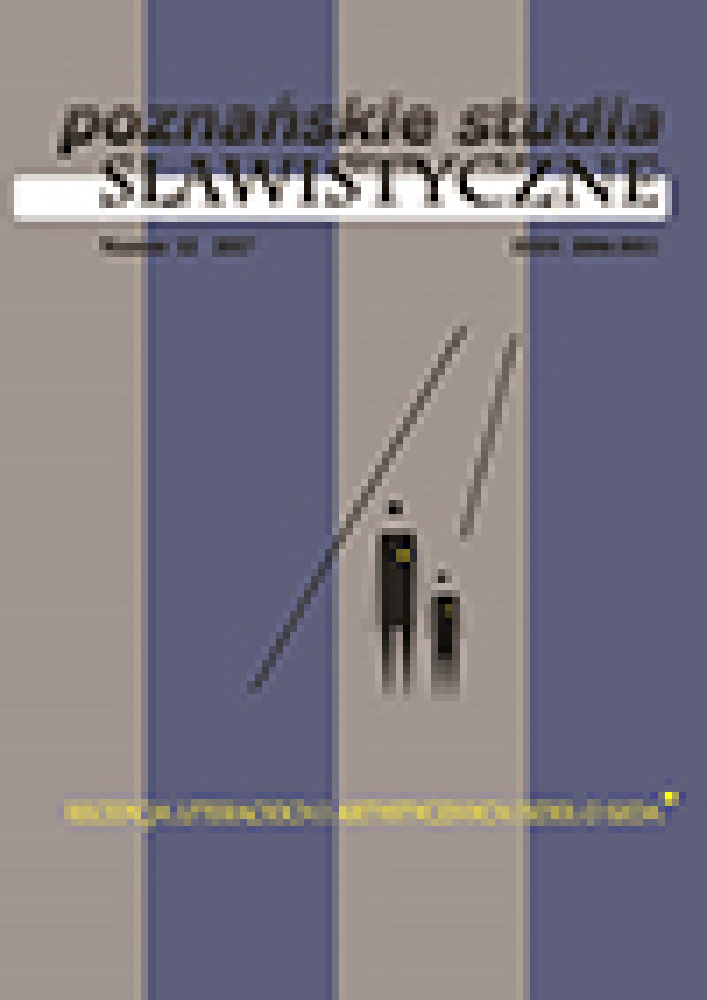Abstrakt
The name of the Czech writer Josef Bor (1906–1979) is nearly forgotten today, although he was very successful with two works in the sixties. Both works deal with the Holocaust. The novel Opuštěná panenka (1961) is inspired by the author’s own horrible experiences at Terezín, Auschwitz and other places of the Holocaust. In 1963, the novella Terezínské rekviem followed which is subject of this paper. Bor’s novella is about the Jewish musician Rafael Schächter and his staging of Verdi’s Requiem at Terezín. From the viewpoint of reception, this work is interesting on two counts: on the one hand, in the story the reception and interpretation of art play a crucial role, on the other hand, there are some special features in the reception of the novella itself, as the work has mostly been read in the light of the real events the story is referring to, whereas the text’s literary character has often been neglected.Bibliografia
Běhounek V., 1963, Prózy malé a ještě menší, „Práce” 19, Nr. 255, 25.10., S. 5.
Benz W., 2013, Theresienstadt. Eine Geschichte von Täuschung und Vernichtung, München.
https://doi.org/10.17104/9783406645501
Bolton J., 2004, Josef Bor (Bondy), in: Holocaust Novelists (Dictionary of Literary Biography, V. 299), ed. E. Sicher, Detroit, S. 58–64.
Bor J., 1963, O „Terezínském rekviem”, „Svobodné slovo” 19, Nr. 303, 20.12., S. 3.
Bor J., 1964, Terezínské rekviem, Praha. Bor J., 1965, Zasláno, „Literární noviny” 14, Nr. 23, 5.06., S. 2.
Dobeš K., 1965, A tu nemohl jsem mlčet... Pět minut hovoru a dlouhá doba mlčení s Josefem Borem, „Svobodné slovo” 21, Nr. 72, 14.03., S. 4.
Herrmannová E., 1965, (Rez. J. Bor, Terezínské rekviem), „Literární noviny” 14, Nr. 22, 29.05., S. 4.
Ibler R., 2015, Josef Bors Roman „Opuštěná panenka” zwischen Faktizität und Fiktionalität, „Slovo a smysl” 23, Jg. 12, S. 80–93.
Jantos C.-M., 2014, Brundibár in Terezín. Zur Bedeutung des Musiklebens im Konzentrationslager Theresienstadt, Hamburg.
Karas J., 1985, Music in Terezín 1941–1945, New York.
Pohorský M., 1963, Baladické rekviem o lidské nezdolnosti, „Večerní Praha” 9, 13.11., S. 3.
Schamschula W., 2004, Geschichte der tschechischen Literatur, Bd. III, Köln–Weimar–Wien.
Schreiner S., 2007, „Seine Taten sind sein Denkmal”, „Orientierung” 71, Nr. 1, S. 1–4.
Schweikert U., 2001, Messa da Requiem, in: Verdi-Handbuch, Hg. A. Gerhard, U. Schweikert, Kassel–Stuttgart, S. 496–504.
https://doi.org/10.1007/978-3-476-02717-7_46
Udolph L., 2003, Josef Bors „Terezínské rekviem” (1963), in: Erinnerte Shoah. Die Literatur der Überlebenden, Hg. W. Schmitz, Dresden, S. 326–337.
Žantovský P., 1996, Kulturní marginálie 7/96, „Svobodné slovo” 88, Nr. 77, 30.03., S. 13.
(o.V., o.J.), Schächter, Raphael,in: ghetto-theresienstadt.info, Theresienstadt 1941–1945, , 27.12.2015.
Licencja
Prawa autorskie (c) 2017 Reinhard Ibler

Utwór dostępny jest na licencji Creative Commons Uznanie autorstwa – Bez utworów zależnych 4.0 Międzynarodowe.
